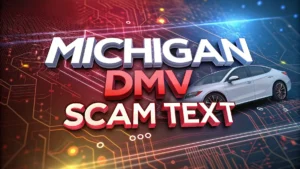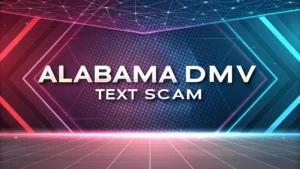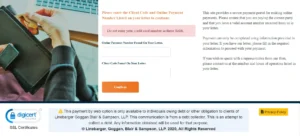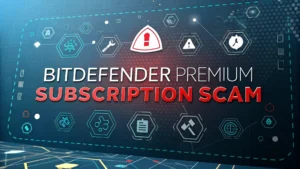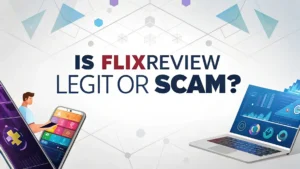Tax season brings many challenges, but one of the most dangerous threats comes through your phone. Tax resolution scam calls have reached epidemic levels, with scammers stealing billions of dollars from unsuspecting taxpayers each year.
These fraudulent calls promise to solve your tax problems for pennies on the dollar, but they often leave victims worse off than before.
Understanding how these scams work and knowing how to protect yourself has never been more important.

Key Takeaways
- The IRS never initiates contact by phone – Legitimate IRS communications always start with a letter in the mail. If someone calls claiming to be from the IRS without prior written notice, it’s a scam.
- Scammers use high-pressure tactics – They create urgency by threatening immediate arrest, deportation, or asset seizure. Real IRS procedures always provide time for response and appeal.
- Payment demands are red flags – Scammers insist on immediate payment through specific methods like prepaid cards, wire transfers, or cryptocurrency. The IRS accepts standard payment methods and allows payment plans.
- Legitimate tax professionals have verifiable credentials – Real tax resolution companies employ licensed professionals whose credentials can be verified through state licensing boards and professional organizations.
- You can resolve tax issues directly with the IRS – Many tax problems can be handled without expensive third-party services. The IRS offers payment plans, hardship programs, and settlement options directly to taxpayers.
Understanding the Tax Resolution Scam Landscape
Tax resolution scam calls represent a sophisticated criminal enterprise that targets vulnerable taxpayers across the United States. These scams typically involve criminals posing as IRS agents, tax resolution specialists, or representatives from legitimate-sounding tax relief companies. The scammers use publicly available information to make their calls seem credible, often knowing personal details about their targets.
The scope of the problem is staggering. According to recent data, tax-related scams have become one of the most profitable criminal activities in America. The scammers operate from call centers both domestically and internationally, using advanced technology to spoof legitimate phone numbers and create convincing fake websites.
These operations often target specific demographics, including elderly taxpayers, recent immigrants, and people experiencing financial hardship. The criminals know that people facing tax problems are often desperate for help and may not think clearly when presented with what appears to be a solution to their problems.
The psychological manipulation used in these scams is particularly harmful. Scammers create artificial urgency and fear, making victims believe they must act immediately to avoid serious consequences. This emotional manipulation prevents people from taking time to verify the legitimacy of the contact or seek advice from trusted sources.
Common Types of Tax Resolution Scam Calls
IRS Impersonation Calls represent the most common type of tax scam. In these calls, criminals claim to be IRS agents and inform victims that they owe back taxes that must be paid immediately. They often provide fake badge numbers and reference numbers to appear legitimate. These scammers threaten arrest, wage garnishment, or deportation if payment is not made within hours.
Fake Tax Relief Company Calls involve criminals posing as representatives from tax resolution companies. They promise to settle tax debts for “pennies on the dollar” and claim to have special relationships with the IRS. These scammers often use names similar to legitimate companies and may even create fake websites to support their claims.
Robocall Tax Scams have become increasingly common, with automated messages claiming to be from tax relief services. These calls typically leave voicemails with callback numbers, hoping victims will call back and provide personal information. The automated nature allows scammers to target thousands of people simultaneously.
Social Security and Medicare Tax Scams combine multiple government impersonation tactics. Scammers claim that Social Security numbers have been suspended due to tax problems or that Medicare benefits will be terminated unless immediate payment is made. These scams are particularly effective against elderly victims.
Red Flags That Identify Scam Calls
Immediate Payment Demands are perhaps the biggest red flag in tax scam calls. Legitimate tax authorities never demand immediate payment over the phone. The IRS always provides written notice and allows time for taxpayers to respond, appeal, or arrange payment plans. Scammers create false urgency to prevent victims from thinking clearly or seeking advice.
Specific Payment Method Requirements should immediately raise suspicion. Scammers typically demand payment through prepaid debit cards, wire transfers, cryptocurrency, or gift cards. These payment methods are difficult to trace and nearly impossible to reverse. The IRS accepts checks, money orders, and electronic payments through official channels, never gift cards or prepaid cards.
Threats of Immediate Consequences are used to create fear and compliance. Scammers threaten arrest within hours, immediate asset seizure, or deportation proceedings. Real IRS procedures involve multiple notices over months or years before serious enforcement actions are taken. The agency also provides clear appeal processes and taxpayer rights information.
Refusal to Provide Written Information is another major warning sign. Legitimate tax authorities and professional services always provide written documentation of debts, procedures, and rights. Scammers avoid written communication because it can be used as evidence and allows victims time to verify information.
How Scammers Obtain Your Personal Information
Data Breaches and Public Records provide scammers with the personal information they need to make their calls seem legitimate. Criminal organizations purchase or steal databases containing names, addresses, Social Security numbers, and financial information. This data allows them to reference specific details about their targets, making the scams more convincing.
Social Media Mining has become a major source of information for scammers. Many people share personal details on social platforms without realizing how this information can be used against them. Scammers use automated tools to collect data from social media profiles, creating detailed profiles of potential victims.
Previous Scam Attempts often generate leads for new scams. When someone falls victim to one scam, their information is typically sold to other criminal organizations. This explains why some people receive multiple scam calls targeting different types of fraud.
Legitimate Business Interactions can also be exploited. Scammers sometimes pose as representatives from companies or organizations that victims have actually dealt with in the past. They use information from these legitimate interactions to establish credibility before attempting to defraud their targets.
The Psychology Behind Scam Success
Fear-Based Manipulation forms the foundation of most tax scam calls. Scammers understand that the threat of legal consequences, financial ruin, or deportation creates powerful emotional responses that override logical thinking. They exploit people’s natural fear of government authority and tax problems to gain compliance.
Authority Impersonation leverages people’s tendency to comply with perceived authority figures. By claiming to represent the IRS or other government agencies, scammers tap into deeply ingrained respect for official authority. Many victims comply with demands they would never accept from strangers because they believe they are dealing with legitimate government representatives.
Time Pressure Tactics prevent victims from taking time to verify information or seek advice. Scammers claim that immediate action is required to avoid serious consequences, creating artificial urgency that pushes people to make hasty decisions. This technique is particularly effective because it mimics legitimate emergency situations where quick action is actually necessary.
Social Proof and Credibility Signals are used to make scams seem legitimate. Scammers reference real IRS procedures, use official-sounding language, and may even provide fake badge numbers or case references. These details create an appearance of legitimacy that can fool even careful victims.
Legitimate IRS Contact Procedures
Written Communication First is the standard procedure for legitimate IRS contact. The agency always sends written notices through the mail before making phone contact about tax issues. These notices include specific information about the taxpayer’s account, the amount owed, and available options for resolution.
Official Phone Contact Protocols exist for legitimate IRS calls, but they follow specific procedures. IRS employees will never call to demand immediate payment or threaten arrest. When the IRS does call, it’s typically to discuss existing cases or schedule appointments, and they will always reference prior written correspondence.
Taxpayer Rights and Protections are clearly outlined in all legitimate IRS communications. Real IRS notices explain taxpayer rights, appeal procedures, and available assistance programs. The agency provides multiple ways for taxpayers to verify the legitimacy of communications and seek help understanding their options.
Private Collection Agency Procedures are used by the IRS for certain types of tax debt, but these follow strict protocols. Taxpayers receive written notice before their accounts are assigned to private collection agencies, and these agencies must follow specific rules about how they can contact taxpayers and what methods they can use to collect debts.
Protecting Yourself from Tax Scam Calls
Never Give Personal Information Over the Phone to unsolicited callers, regardless of who they claim to represent. Legitimate organizations will never ask for Social Security numbers, bank account information, or credit card details during unsolicited phone calls. If someone claims to need this information, hang up and contact the organization directly using official phone numbers.
Verify All Tax-Related Communications through official channels before taking any action. If you receive a call claiming to be from the IRS, hang up and call the agency directly at 1-800-829-1040. If someone claims to represent a tax relief company, research the company independently and verify their credentials before providing any information.
Document All Suspicious Contacts by recording dates, times, phone numbers, and details of what was said. This information can be valuable for reporting scams to authorities and may help prevent others from becoming victims. Keep detailed records of all tax-related communications, both legitimate and suspicious.
Use Call Blocking Technology to reduce the number of scam calls you receive. Most phone carriers offer call blocking services, and many smartphones have built-in features to identify and block suspicious calls. Register your phone number with the National Do Not Call Registry to reduce legitimate telemarketing calls.
Steps to Take if You Receive a Scam Call
Hang Up Immediately if you receive a suspicious tax-related call. Do not engage with the caller or provide any information, even if they seem to know personal details about you. Scammers often use information they already have to try to get additional details or confirm their data.
Do Not Call Back using phone numbers provided by suspicious callers. Scammers often provide callback numbers that may lead to additional scam attempts or premium rate phone services that charge high fees. Instead, contact relevant organizations directly using official phone numbers from their websites or official documents.
Report the Scam to appropriate authorities to help prevent others from becoming victims. Report IRS impersonation scams to the Treasury Inspector General for Tax Administration at 1-800-366-4484. Report all scam calls to the Federal Trade Commission at reportfraud.ftc.gov.
Check Your Accounts and Credit after receiving scam calls, especially if you provided any information to the callers. Monitor your bank accounts, credit cards, and credit reports for suspicious activity. Consider placing fraud alerts on your credit reports if you believe your information may have been compromised.
Verifying Legitimate Tax Resolution Services
Research Company Credentials thoroughly before engaging with any tax resolution service. Legitimate companies employ licensed tax professionals such as enrolled agents, certified public accountants, or tax attorneys. These credentials can be verified through state licensing boards and professional organizations.
Check Better Business Bureau Ratings and online reviews from multiple sources. Be wary of companies with numerous complaints or patterns of poor service. However, also be cautious of companies with only positive reviews, as these may be fake reviews created by the companies themselves.
Understand Fee Structures and get all agreements in writing before paying anything. Legitimate tax resolution companies should be transparent about their fees and what services they provide. Be suspicious of companies that demand large upfront payments or guarantee specific outcomes.
Verify Professional Licensing by checking with relevant professional organizations and state licensing boards. Enrolled agents can be verified through the IRS website, CPAs through state boards of accountancy, and attorneys through state bar associations. Never work with unlicensed individuals claiming to provide tax resolution services.
Reporting Tax Scams and Getting Help
Federal Reporting Requirements help authorities track and combat tax scams. Report IRS impersonation scams to the Treasury Inspector General for Tax Administration and the Federal Trade Commission. Provide as much detail as possible about the scam attempt, including phone numbers, names used, and specific claims made by the scammers.
State and Local Resources may also be available for reporting scams and getting assistance. Many state attorneys general offices have consumer protection divisions that investigate scams and provide resources for victims. Local consumer protection agencies may also offer assistance and education about current scam trends.
Professional Help and Resources are available for taxpayers who need legitimate assistance with tax problems. The IRS offers free assistance through Volunteer Income Tax Assistance programs and Taxpayer Advocate Service. Many communities also have nonprofit organizations that provide free or low-cost tax help.
Recovery Options for Victims may be limited, but some steps can help minimize damage. Contact banks and credit card companies immediately if you provided financial information to scammers. File identity theft reports with the FTC and consider placing credit freezes on your accounts to prevent additional fraud.
Frequently Asked Questions
Will the IRS ever call me about tax debt?
The IRS may call about existing tax issues, but only after sending written notice first. They never call to demand immediate payment or threaten arrest.
How can I tell if a tax relief company is legitimate?
Check their credentials, BBB rating, and professional licensing. Legitimate companies are transparent about fees and never guarantee specific outcomes.
What should I do if I already gave information to a scammer?
Contact your bank immediately, report the scam to authorities, and monitor your accounts for suspicious activity.
Are there free alternatives to expensive tax resolution services?
Yes, the IRS offers payment plans, hardship programs, and free assistance through various programs. Many tax issues can be resolved directly with the IRS.
How do I report a tax scam call?
Report IRS impersonation scams to TIGTA at 1-800-366-4484 and all scam calls to the FTC at reportfraud.ftc.gov.
Can I block tax scam calls?
Yes, use call blocking technology and register with the Do Not Call Registry to reduce unwanted calls.
What payment methods do scammers prefer?
Scammers typically demand prepaid cards, wire transfers, or cryptocurrency because these payments are difficult to trace or reverse.
How do scammers get my personal information?
They obtain information through data breaches, public records, social media, and previous scam attempts.
What should I do if I think I owe taxes?
Contact the IRS directly at 1-800-829-1040 to verify any tax debt and discuss legitimate resolution options.
Are robocalls about tax debt always scams?
Yes, legitimate tax authorities do not use robocalls to contact taxpayers about debt or tax issues.












